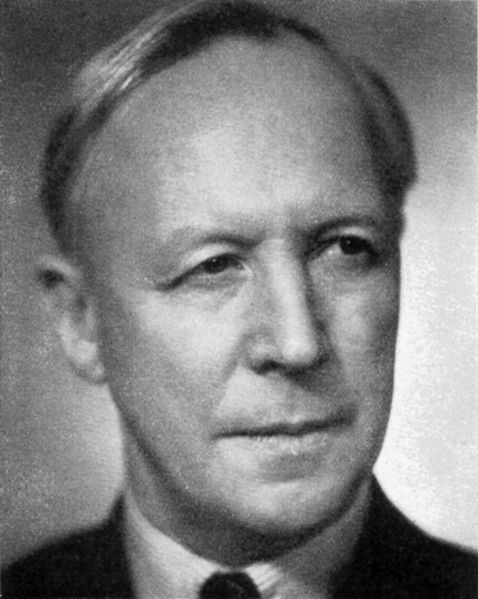<Back to Index>
- Minister of Finance Ernst Johannes Wigforss, 1881
PAGE SPONSOR

Ernst Johannes Wigforss (24 January 1881 – 2 January 1977) was a Swedish politician and linguist (dialectologist), mostly known as a prominent member of the Social Democratic Workers' Party and Swedish Minister of Finance. Wigforss became one of the main theoreticians in the development of the Swedish Social Democratic movement's revision of Marxism, from a revolutionary to a reformist organization. He was inspired and stood ideologically close to the ideas of the Fabian Society and the Guild Socialism and inspired by people like R.H. Tawney, LT. Hobhouse and J.A. Hobson. He made contributions in his early writings about Industrial democracy and Workers' self - management.
Born in the town of Halmstad in Halland in south western Sweden, Wigforss studied at Lund University from 1899, and published writings on political issues in this period. He completed a doctorate in 1913 with a dissertation on the dialect of south Halland, becoming docent in Scandinavian languages at the university the same year. He taught at the gymnasium in Lund (Lunds högre allmänna läroverk) 1911 - 1914 and as lecturer of German and Swedish at the Latin gymnasium in Gothenburg from 1914.
In 1919 Wigforss was elected a social democratic member of the First Chamber of the Swedish Parliament, representing Gothenburg, and he became member of various committees. He was appointed a member of the third cabinet of Hjalmar Branting in 1924, and after Branting's resignation in January 1925, became a member of Rickard Sandler's cabinet. He was made temporary Minister of Finance on 24 January 1925 when Fredrik Thorsson fell ill, and succeeded him on 8 May of the same year, following his death. The Sandler cabinet resigned on 7 June 1926.
He was again Minister of Finance in the cabinets of Per Albin Hansson and Tage Erlander from 1932 to 1949.
Regarding the currency crisis of 1947, Wigforss became Gunnar Myrdal's main political opponent. Swedish historians tend to interpret this crisis as Myrdal's political failure, while the historian Orjan Appelqvist argued that it is Wigforss and Axel Gjöres who hold primary responsibility for this political fiasco.
Some say that Wigforss' economic policies were strongly influenced by John Maynard Keynes, but he may have anticipated Keynes, because he proposed counter - cyclical economic policy before becoming minister of finance in 1932. But it is perhaps most accurate to claim that his main economic influences came from Knut Wicksell. He inspired younger economists like Gunnar Myrdal and the Stockholm school, who worked in the same direction as Keynes at the same time. John Kenneth Galbraith writes in his book A History of Economics: The Past as the Present, 1991, that it "would be more fair to say 'The Swedish Economic Revolution' than the 'Keynesian revolution' in economics, and that Wigforss was first in this transformation of thinking and practice about economy".
In his pamphlet Har vi råd att arbeta? (Can we afford to
work?), widely believed to have won the 1932 elections for the Social
Democrats, he made fun of the Liberal theory that budget cuts are the
proper remedy for economic downturns. Although he is considered the
creator of the Swedish high tax economy, controversies with Minister for
Social Affairs Gustav Möller
(who would have preferred taxes to have been even higher) prevented
both from being elected party chairman and Prime Minister at the death
of Hansson.
Dagens Nyheter, a Swedish newspaper, and Iltalehti, a Finnish tabloid, report that a document has been found in a safe at the Swedish Finance Ministry pertaining to a significant loan Wigforss granted to support Nazi Germany's war effort. No official records were ever made about this loan, but Swedish diplomat Krister Wahlbäck stated that the loan was agreed to and authorized by Wigforss for the specific purpose of assisting Hitler's war effort.
After his resignation, Wigforss continued until his death to write and speak on political issues and was considered one of the most innovative and daring Social Democrat politicians. He supported the anti - nuclear movement of the 1950s and contributed to the discontinuation of the Swedish nuclear arms program in 1962.